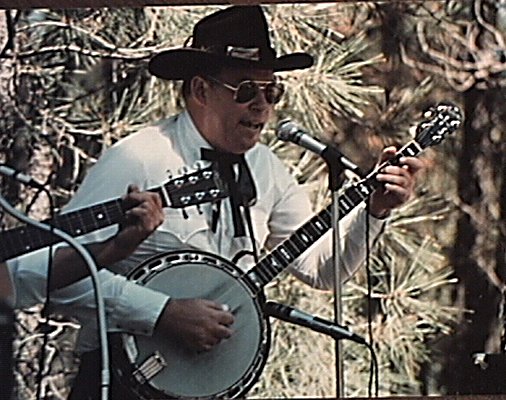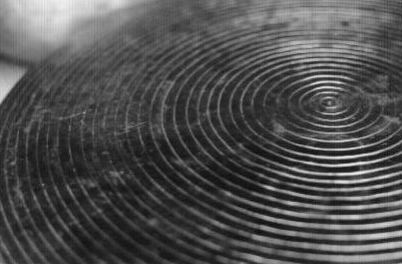
Just a little Zizek-inspired thought before bed.
I remember in high school being elated at the wisdom of two lyrics from musicians I had breif and intense obessions with:
One: "The revolution will not be televised, brother!" Which was Gill Scott-Heron's exclamation in his poem of the same name. Scott-Heron is a kind of radical black slam poet and soul musician.
Two: "Sister had a birthday, won't be televised. [...] Smash the magnavox!" Which was the Blue Meanies - a noise-ska band.
I only made the connection that this sort of thinking was misdirected, misleading, inaccurate, self-defeating, etc once I read Antonio Negri's Empire. Zizek reminded me of it a moment ago.
Of course the revolution will be televised - not only will it be televised, but it will face its greatest threat by being televised. This is an easy and effective way for the dominant ideology to keep radical thought in check. Theres an over-saturation of representation of 'you and I' on television - we're on all the time, the revolution makes it to every episode of 20/20 and 60 Minutes. The only way to oppose the dominant ideology is to turn its own methods to progressive use. Echoing Scott-Heron and the Blue meanies (we're being repressed, we aren't allowed to fit in!) just reinforces the culture of otherness that has been built around this pervasive saturation of the everyman...
Okay, enough for now. Just thought it was funny that I was directing my indignation in a totally naive way for years (not to say I see the light now, but at least that's one veil lifted)...









 Here's a little personal history. I remember when I first realized that erotic appeal of counterculture screw-your-homework-read-nietzsche transgression married to radical visual and audio culture. I'm a composer, and so maybe that's why it was first with a book called "Jamming the Media." It was probably junior year of high school - when I was still publishing a zine - and I think I bought Oval's Ovalcommers that same month. To me, Autechre was shiny and new, and I had a feverish need to absorb anything I thought would take me deeper into a world of skipping CDs and homemade literature. Reading Jamming was a simultaneous experience: I could absorb a history of radical media activism, while learning and marveling at what was for me at least a completely radical and beautiful presentation. The design made the book easy to fetishize. I remember it being thrilling to first read about the book, and then to own my own copy and feel the exhilaration of reading an essay about mail art couched under a fractured typeface. Even the type of paper was new to me - the visual experience was striking, I had never seen a book like this. But it wasn't just the beautiful design - I was as tantilized by the aesthetics of the design as I was by the aesthetics of the content of the book. The revolutionary immediacy of directly subverting a real power - the media - was entangled with punk rock and avant garde art and all those other cool things I knew enough about to know that I wanted to slip into their culture somehow.
Here's a little personal history. I remember when I first realized that erotic appeal of counterculture screw-your-homework-read-nietzsche transgression married to radical visual and audio culture. I'm a composer, and so maybe that's why it was first with a book called "Jamming the Media." It was probably junior year of high school - when I was still publishing a zine - and I think I bought Oval's Ovalcommers that same month. To me, Autechre was shiny and new, and I had a feverish need to absorb anything I thought would take me deeper into a world of skipping CDs and homemade literature. Reading Jamming was a simultaneous experience: I could absorb a history of radical media activism, while learning and marveling at what was for me at least a completely radical and beautiful presentation. The design made the book easy to fetishize. I remember it being thrilling to first read about the book, and then to own my own copy and feel the exhilaration of reading an essay about mail art couched under a fractured typeface. Even the type of paper was new to me - the visual experience was striking, I had never seen a book like this. But it wasn't just the beautiful design - I was as tantilized by the aesthetics of the design as I was by the aesthetics of the content of the book. The revolutionary immediacy of directly subverting a real power - the media - was entangled with punk rock and avant garde art and all those other cool things I knew enough about to know that I wanted to slip into their culture somehow.